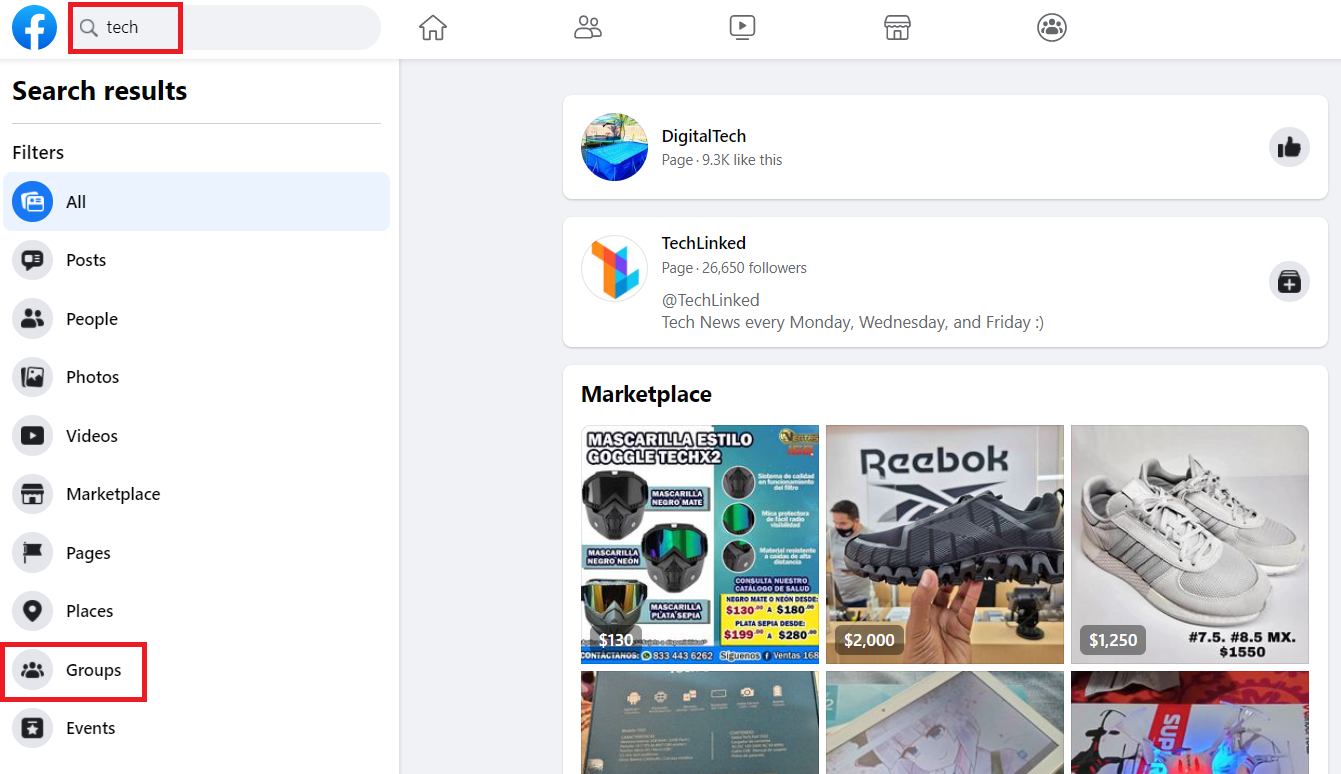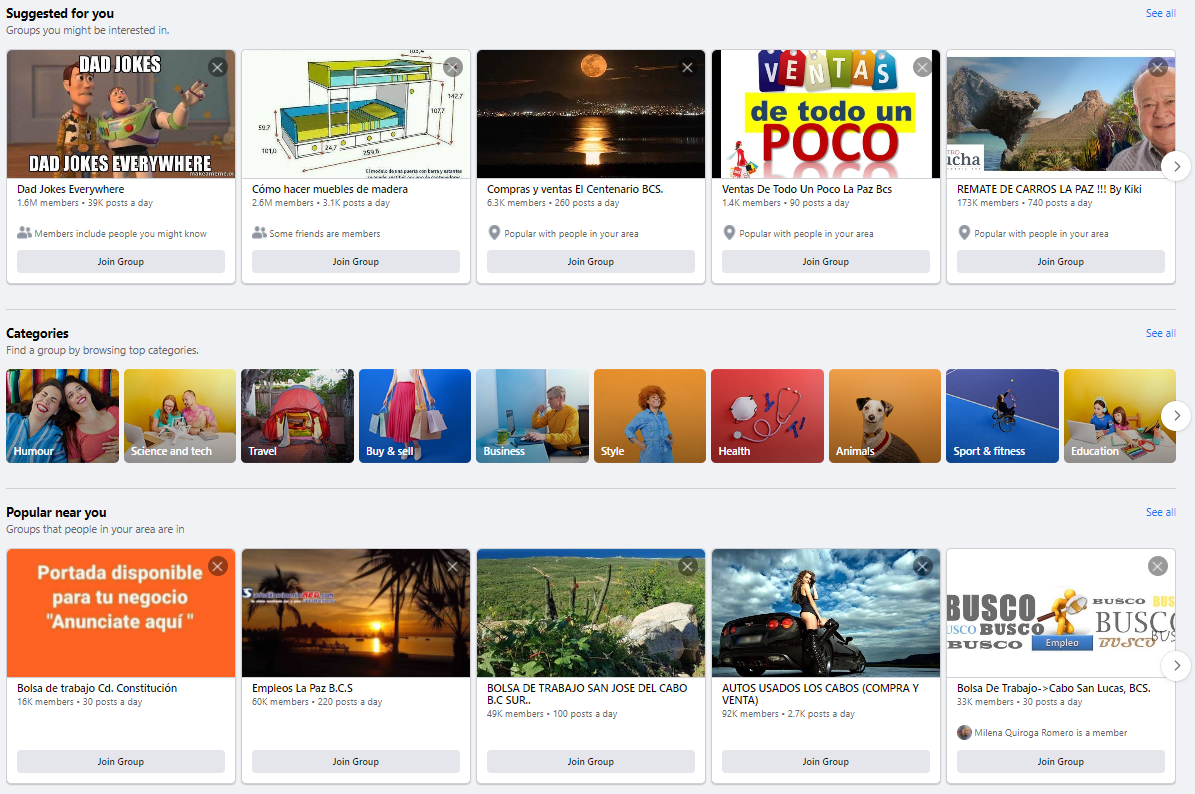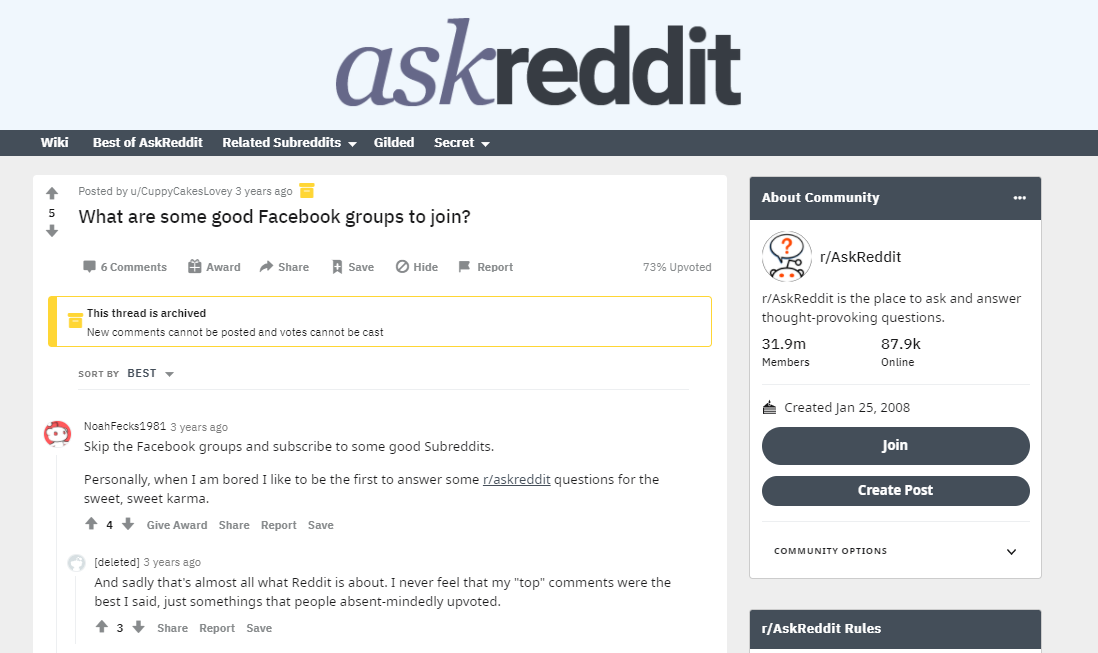
Essential Methods to Discover New Social Media Clusters

Essential Methods to Discover New Social Media Clusters
Facebook is not just a place to interact with the people you know, but also to connect with people with who you might have a lot in common. While “friends of friends” is one way to expand your social circle, joining a Group is the easiest way to find people with like-minded interests.
The only problem is that it’s a bit difficult to find these Facebook Groups. There is no simple directory of all Facebook Groups to browse through, so the best you can do is rely on recommendations of Groups to join or learn a few tips and tricks to discover new Groups.
Here are the best ways to discover new groups, including how to find Facebook Groups by location…
Disclaimer: This post includes affiliate links
If you click on a link and make a purchase, I may receive a commission at no extra cost to you.
1. Learn to Use Facebook Search and Find Groups by Location

You can use Facebook search to key in the name of any topic you want to find a group for. Once you see the results, click “Groups” in the list of filters in the left-hand panel.
The Facebook Search tool finds almost anything you want, but you need to learn how to use it correctly. Much like Google has keywords and search tricks, you need to know the “filters” or “keywords” you can use on Facebook.
The good news is that Facebook Search uses natural language processing, which means you can talk to it like you normally would. For example, “Groups joined by colleagues from MUO” will show all the Groups that MUO staff have joined, while “Groups joined by people from my country” will display Groups that your local friends and family have joined. This means you can use this trick to find Facebook Groups by location.
Here are a few phrases you can use to search:
- Groups joined by
- Friends
- Family
- From my city
- From my school
- From my current workplace
- Older than [number]
- Younger than [number]
- Who like [something]
Mix and match these to come up with different results. For example, if you are looking for a cult film watcher’s group for mature discussions, you might want to search for “Groups joined by my friends over 40 who like Quentin Tarantino.” It’s all about your imagination!
2. Browse Facebook’s Recommendations

Whether you like it or not,Facebook knows a lot about you already ! While this lack of privacy can be troubling, it helps at times like when you want to find new Groups. Facebook uses all the information it has about you to recommend Groups that you should join.
Go toFacebook’s “Discover” feature for Groups and go through the recommendations. They are divided into topics such as Friends’ Groups, Suggested for You, Popular Near You, and various other categories (like humor, sports, tech, and so on).
3. Ask in Other Communities

Facebook Groups are far from being the only online hangout for people with similar interests.
For example, Reddit has dedicated subreddits for almost every topic imaginable. It doesn’t matter how niche your interest is, you’ll almost always be able to find people to talk to. These subreddits are a great place to ask for recommendations about where other discussions are happening.
In recent years, Telegram and Discord have also become popular hangouts. Again, it’s worth asking to see if they know about any active Facebook Groups that are worth joining.
4. Create Your Own Group
If you cannot find an active Facebook group in your area of interest, then you should consider making a new one. After all, there might be hundreds of people out there who wish there was a group on a particular subject and who have been waiting for someone to stand up and take responsibility.
To get started, read ourintroduction to Facebook Groups . Once you have performed the basic setup steps, you can start promoting it on other sites, among your like-minded friends, and even on Facebook itself. You should be able to rack up a good number of subscribers quickly.
Join a Facebook Group or a Facebook Page?
The differences between Pages and Groups often cause confusion among Facebook users.
The main difference differences are in their purpose, their privacy controls, and their analytics. A Group is for discussion with a community, a page is more suitable for a single business or organization.
Also read:
- [New] 2024 Approved Mastering The Art of Viral Videos for Higher YouTube Popularity
- [New] In 2024, Elevate Your Instagram Storytelling with Automated Captions
- [New] Navigating the Square Wave of Facebook Video Popularity
- [New] Pro-Level Editing 10 Must-Have Applications for Insta Videos
- Facebook's Administrative Errors: The Spark for Amazon Litigation?
- How to Transfer Videos from Realme C67 5G to iPad | Dr.fone
- In 2024, Solved Move from Nokia XR21 to iOS not Working Problems | Dr.fone
- Is Being a Meta Verified User Worth the Expense?
- Leveraging Cookiebot Technology for Superior Site Analytics
- Meta's European Strategy: The Potential Demise of Facebook & Instagram
- Social Web’s Benefits: The Top 7 Societal Upsurges
- Unraveling New Antitrust Regulations and Their Impact
- Why Is Facebook Choosing 'Just Feed', And What Does It Mean for Users
- Title: Essential Methods to Discover New Social Media Clusters
- Author: Michael
- Created at : 2024-09-26 16:33:43
- Updated at : 2024-09-28 17:14:31
- Link: https://facebook.techidaily.com/essential-methods-to-discover-new-social-media-clusters/
- License: This work is licensed under CC BY-NC-SA 4.0.